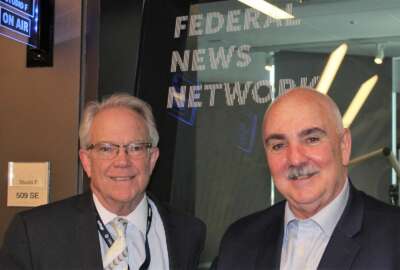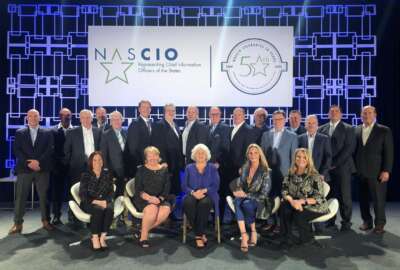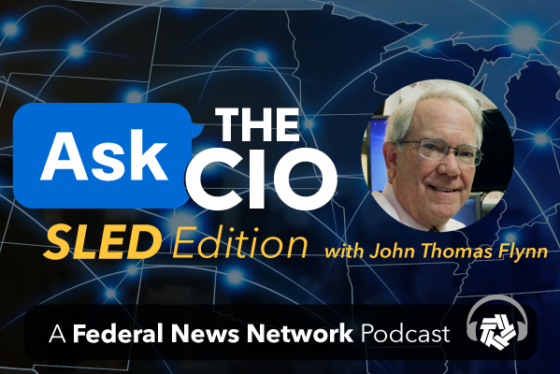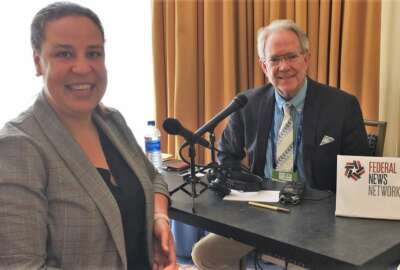
NASCIO celebrates 50th anniversary, Virginia and Massachusetts highlighted
NASCIO celebrated 50th anniversary with over 850 CIOs and IT vendors in Nashville, Tennessee. Virginia's CIO had the latest details on its enterprise IT outsourcing...
The National Association of State Chief Information Officers (NASCIO) celebrated its 50th anniversary recently at its fall conference in Nashville, Tennessee. Federal News Network’s Ask the CIO: SLED Edition was on the scene for the festivities, and I was honored to mark the occasion of my quarter century association with NASCIO. I interviewed a number of state CIOs and NASCIO officials for a series of broadcasts and articles.
A few weeks after I was appointed the top technology official in Massachusetts in 1993 by then-Gov. Bill Weld, I received a call from Bradley Dugger. He held a similar position in Tennessee, and was the president of NASCIO’s predecessor organization, the National Association of State Information Resource Executive (NASIRE). Dugger congratulated me on my appointment and asked me to join NASIRE, which I did. Then he proceeded to ask if I would be NASIRE’s northeast officer, which I also agreed to. Then, without missing a beat he asked if we would host the next conference in Boston, which I subsequently agreed to do. That conference in 1994 was attended by about 30 state representatives and about twice that number of vendor sponsors and other officials.
Such spontaneity and participation are a far cry from the organization that celebrated its half century mark in October. Nashville’s event was planned several years ago, prior to the hotel even being built, and attracted 48 state and territories CIOs, and 125 vendors for a total of some 850 people — the most attendees in the association’s history.
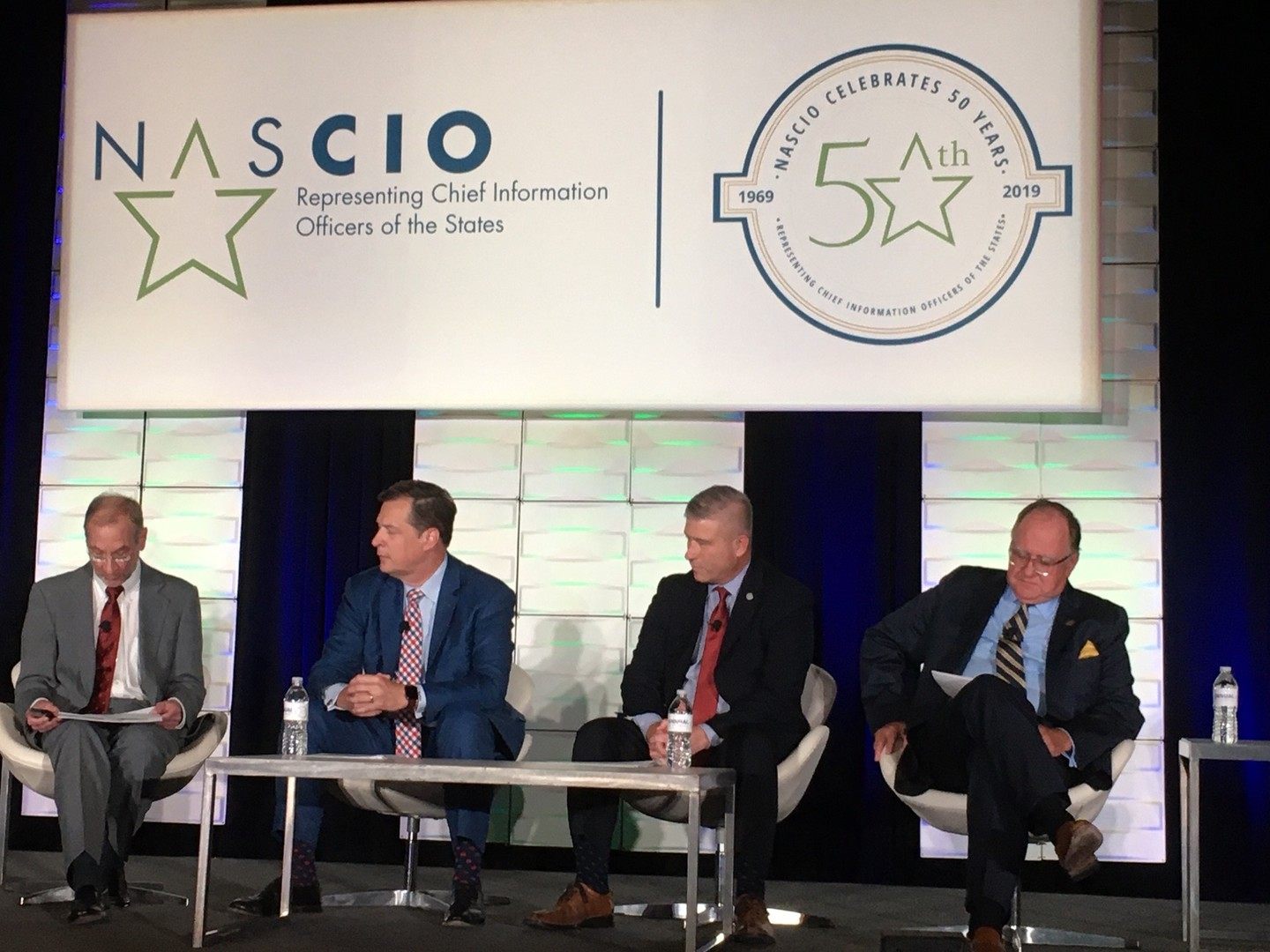
NASCIO membership and participation evolution
NASCIO’s membership itself reflects a similarly radical transformation. When I joined there were no state CIOs within NASIRE’s ranks. Most state officials were career employees, data center managers and a few other “joiners.” In fact, when Weld decided to reorganize Commonwealth IT and name me state CIO in 1994, I was arguably the first, though Michigan and one or two other states were adopting similar re-organizations at that time.
At this NASCIO anniversary all states have a CIO who is appointed by their governor, and a dozen or more are members of the cabinet, the latter a number that increases with each election.
While the organization, membership and popularity have changed significantly over the years so too have the priorities facing state IT officials. While consolidation of state IT organizations continues to evolve even today the heady years of the mid-to-late 1990’s were rife with not only consolidation, but with outsourcing as well. Fueled by popular books like Ted Gabler’s and David Osborne’s “Reinventing Government” in 1992, and other voices which sought to address growing budgetary deficits by introducing competitive government into heretofore monopolistic government functions.
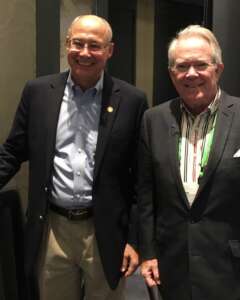
Virginia’s next generation outsourcing initiative
That being the case it was synchronistic that my first conversation at the NASCIO conference in 2019 was with the Commonwealth of Virginia’s Nelson Moe who currently oversees one of the original and most comprehensive state outsourcing initiatives in the country.
“Virginia is one of the few states that’s consolidated all of its IT infrastructure services in a model where all the executive branches rely on the central agency to provide services,” Moe said.
Just last year Virginia substantially changed its model from outsourcing to one primary contractor, Northrop Grumman, in a 10-plus-year outsourcing agreement worth over $2 billion. Last August Virginia moved to a model leveraging a professional, multi-source integrator contract with SAIC and multiple suppliers.
“I use the baseball analogy … where we have hired a coach and individual players and we have the direct contracts with that coach and our individual players to get a best of breed solution,” Moe said. He believes that multi-supplier environment has the best chance to provide the best opportunity going forward and he has testified to this fact even before Congress. He believes it will allow Virginia to add new services at the speed and scale necessary to keep up and provide relevant services to agencies and constituents.
I noted that I was disappointed with the lack of similar initiatives across the country.
“It takes leadership and vision to make the hard choices for what I call a differentiator for government. The government really doesn’t need to have its own data centers because that is not a differentiator for service,” Moe replied.
He emphasized that Virginia will leverage the private sector and their ability to roll out security services as his agency becomes a broker of services.
“It’ll take us some time; by my estimate between six to 18 months from now to be fully matured. That’s historically what it takes,” Moe stated.
We’ll be watching Virginia’s progress with great interest.

State pinged half-a-billion times a day by intruders
My second guest of the day was my successor as CIO in the Commonwealth of Massachusetts, four or five times removed. Curt Wood recently made quite the impression testifying before the Commonwealth’s legislature where he explained the extent of the cybersecurity challenge facing the Bay State.
“It’s a constant threat. We see the threats coming in from pinging on our network, half-a-billion times a day,” he said.
Wood cautioned that there are people out there in the U.S. or foreign countries with automated tools that are just banging away trying to find a vulnerability. It’s his job to prepare for that.
“It shows that order of magnitude and we need to make sure that we have the appropriate focus, the appropriate priority, the funding and support model going forward and a commitment to make sure that our assets are protected,” he said.
Massachusetts latest IT bond introduced
On the brighter side Wood reported that Massachusetts’ unique IT funding model was entering its latest incarnation. Adopted during my time in office Massachusetts, it uses an innovative, multi-year bond for its major IT project and initiative funding.
“Back in the mid-nineties, when you were there, we were struggling from an operational budget. So, the leaders back then, including yourself, were able to convince the administration and convince the legislature that an IT investment using capital funds was the way to go,” Wood explained.
Massachusetts is now completing its fifth bond cycle.
“That’s 25 years where the funding was well over several billion dollars. We have a $1.1 billion bond at the state house right now,” Wood said, while $600 million is dedicated to Wood’s organization for the improvement and advancement of state systems. Cybersecurity has $135 million dedicated, and $165 million is to improve user and customer experience.
“So the bond has just been a tremendous, tremendous asset for us,” Wood concluded.
Copyright © 2024 Federal News Network. All rights reserved. This website is not intended for users located within the European Economic Area.
Related Stories
